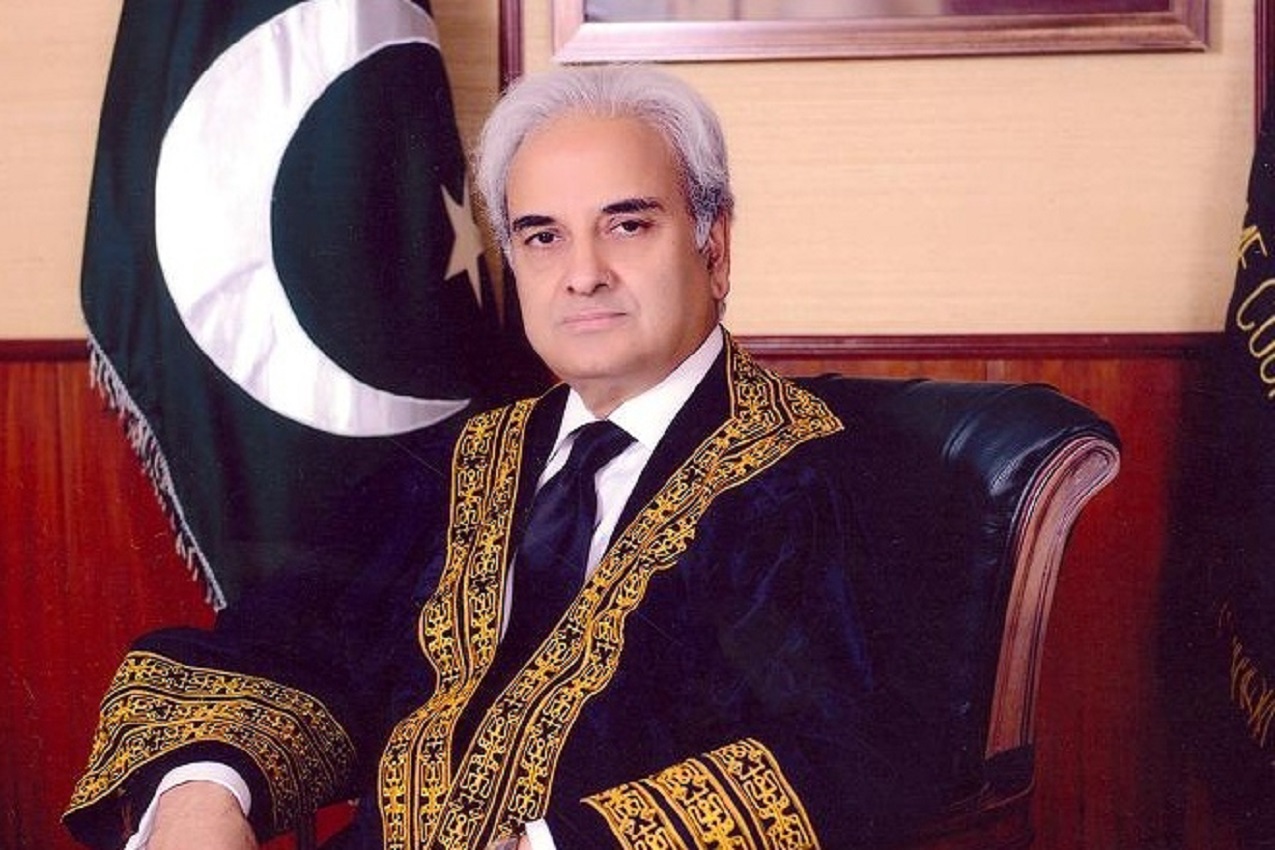Pakistan on Monday appointed former chief justice Nasir-Ul-Mulk as interim prime minister until general elections on 25 July expected to usher in the second-ever democratic transition of power in the nuclear armed nation of 208 million people.
The interim administration does not usually make any major decisions until the new government is elected, though it may be forced to act to shore up the economy amid a worsening macro-economic outlook.
Monday’s appointment, announced by Premier Shahid Khaqan Abbasi, comes amid growing political and economic instability, and ends weeks of wrangling between Abbasi’s ruling Pakistan Muslim League-Nawaz (PML-N) party and the opposition.
“No Pakistani can lift a finger (against) such a name,” Abbasi told reporters, seated next to Syed Khurshid Ahmed Shah, the leader of the opposition Pakistan People’s Party (PPP).
Mulk, who also served as the interim chief of the Election Commission of Pakistan (ECP), will head a technocratic government after the current government and parliament are dissolved on Thursday.
Tasks awaiting the next government’s attention range from tackling Pakistan’s growing international isolation and souring ties with the United States to fixing the economy and a growing reliance on Chinese loans to stay afloat.
The main electoral challenge to PML-N, which has been weakened since its founder Nawaz Sharif was ousted as premier by the Supreme Court, is expected to come from the Pakistan Tehrik-e-Insaf, or Justice Party, headed by cricketer-turned-politician Imran Khan.
Khan, who has risen to prominence on an anti-graft agenda, has promised to clean up government in his first 100 days in office and build “world-class” schools and hospitals.
Mulk was a surprise choice for the role of prime minister, with PPP’s Shah saying the former judge was not the frontrunner when the ruling party and the opposition began discussing the six likely candidates.









